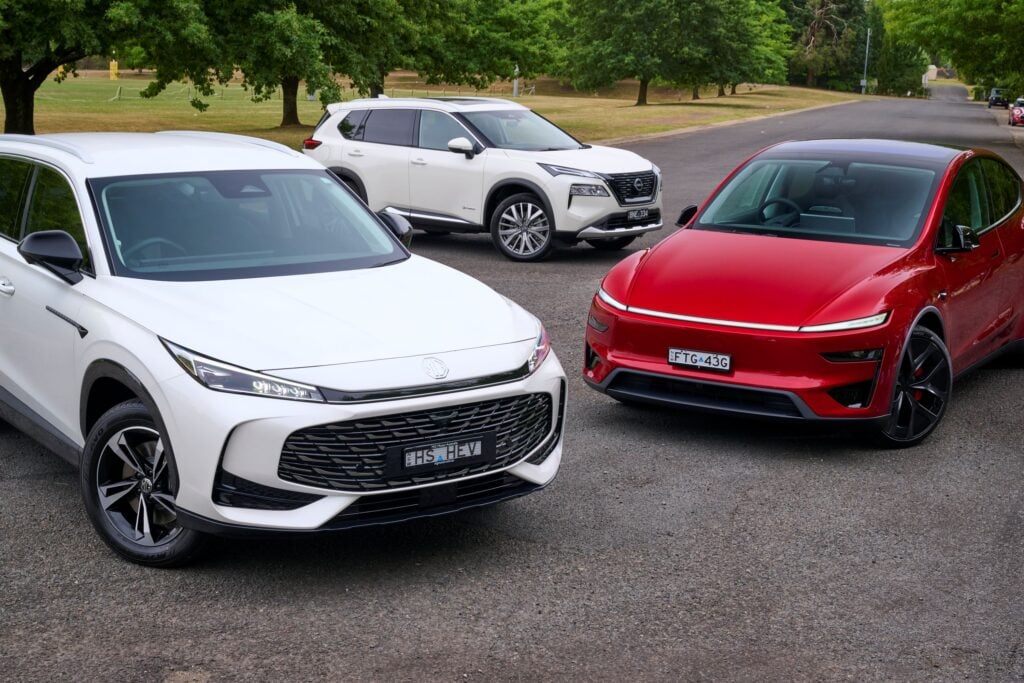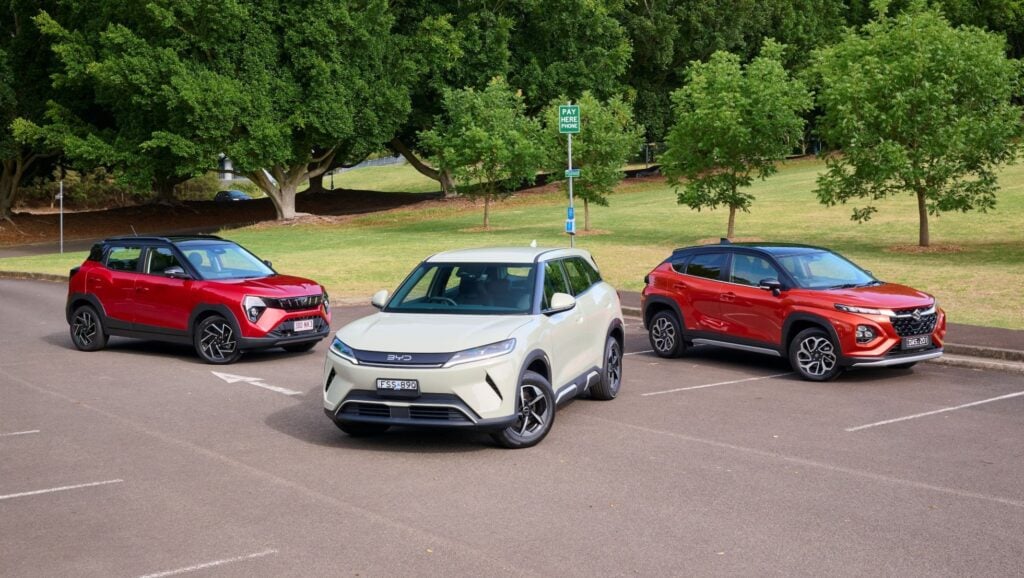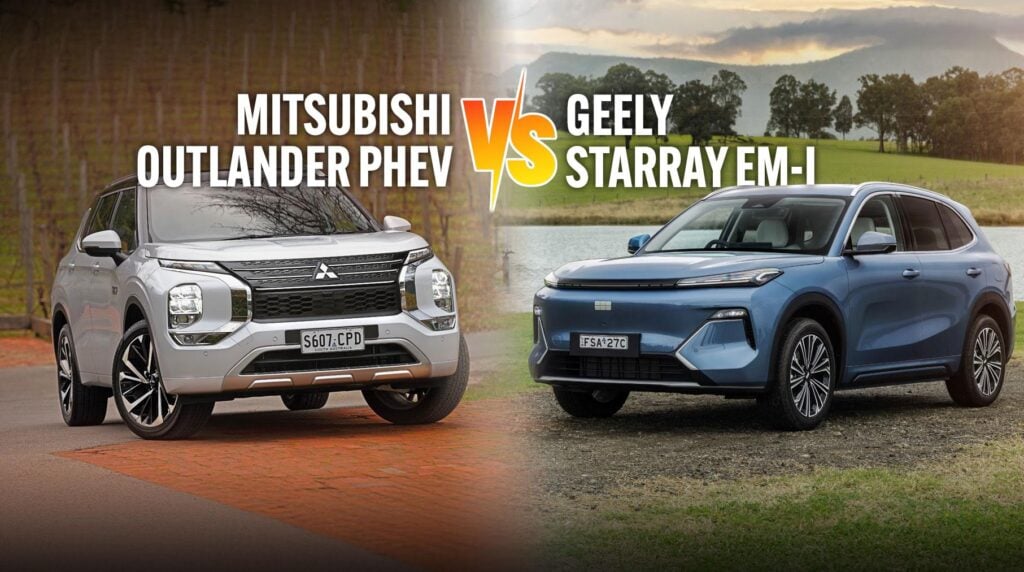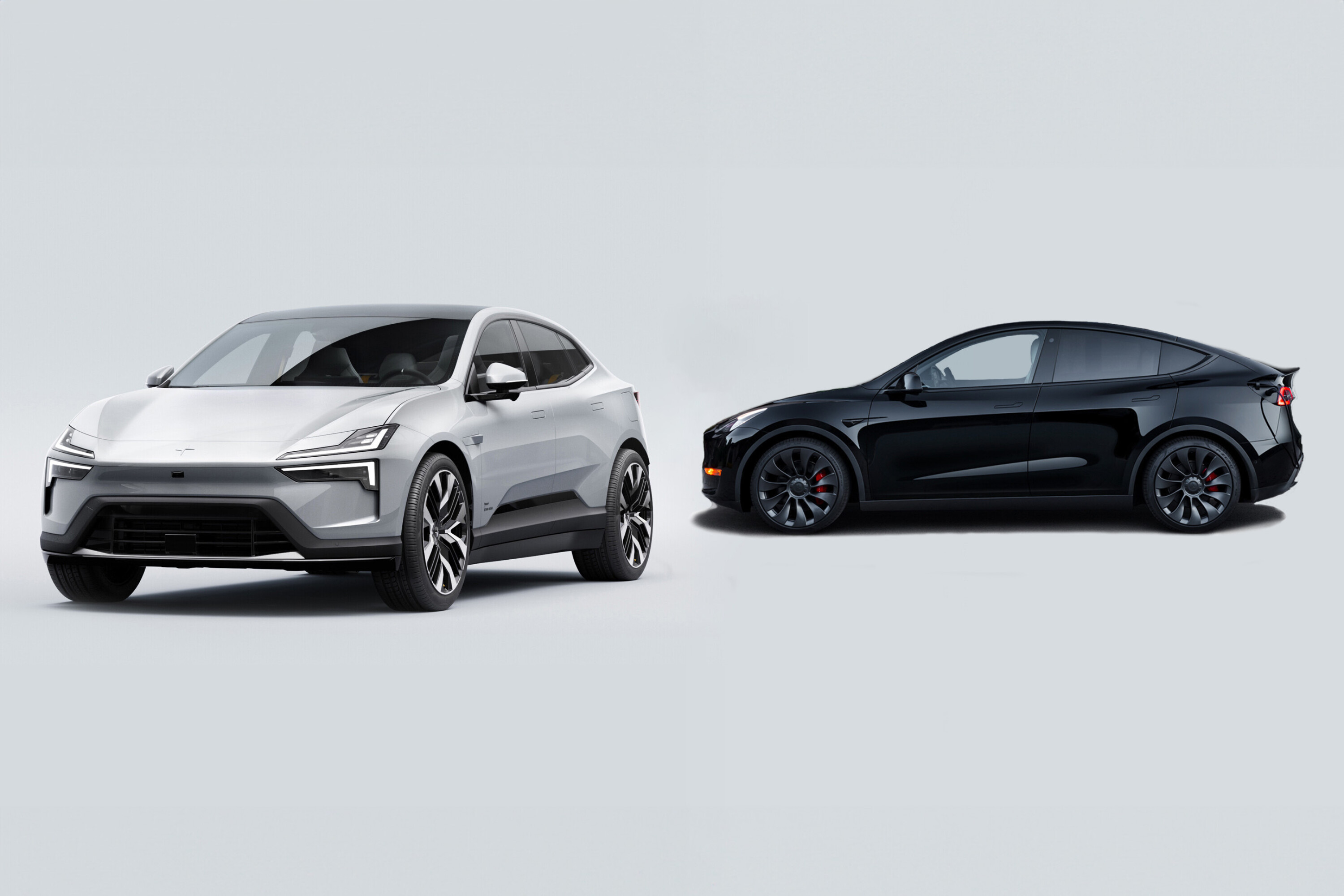
The 2024 Polestar 4 is set to arrive in Australia this year, and when it does the midsize SUV will join the 2 lifted sedan and 3 large SUV on the brand’s website and at its experience centres.
Its main rival will be the popular Tesla Model Y but competition will only hot up with the arrival of new flesh such as BYD’s Sea Lion 07 and Toyota BZ4x and established name plates like the Kia EV6 and Hyundai Ioniq 5.
We’ll be organising a real-world showdown when the Polestar becomes available, but for an early taste we’ve compared the newcomer with the best-seller – and the results are intriguing.
Read on to find out how the Polestar 4 ($81,500-$108,250) stacks up against the Tesla Model Y ($78,400-$92,020).
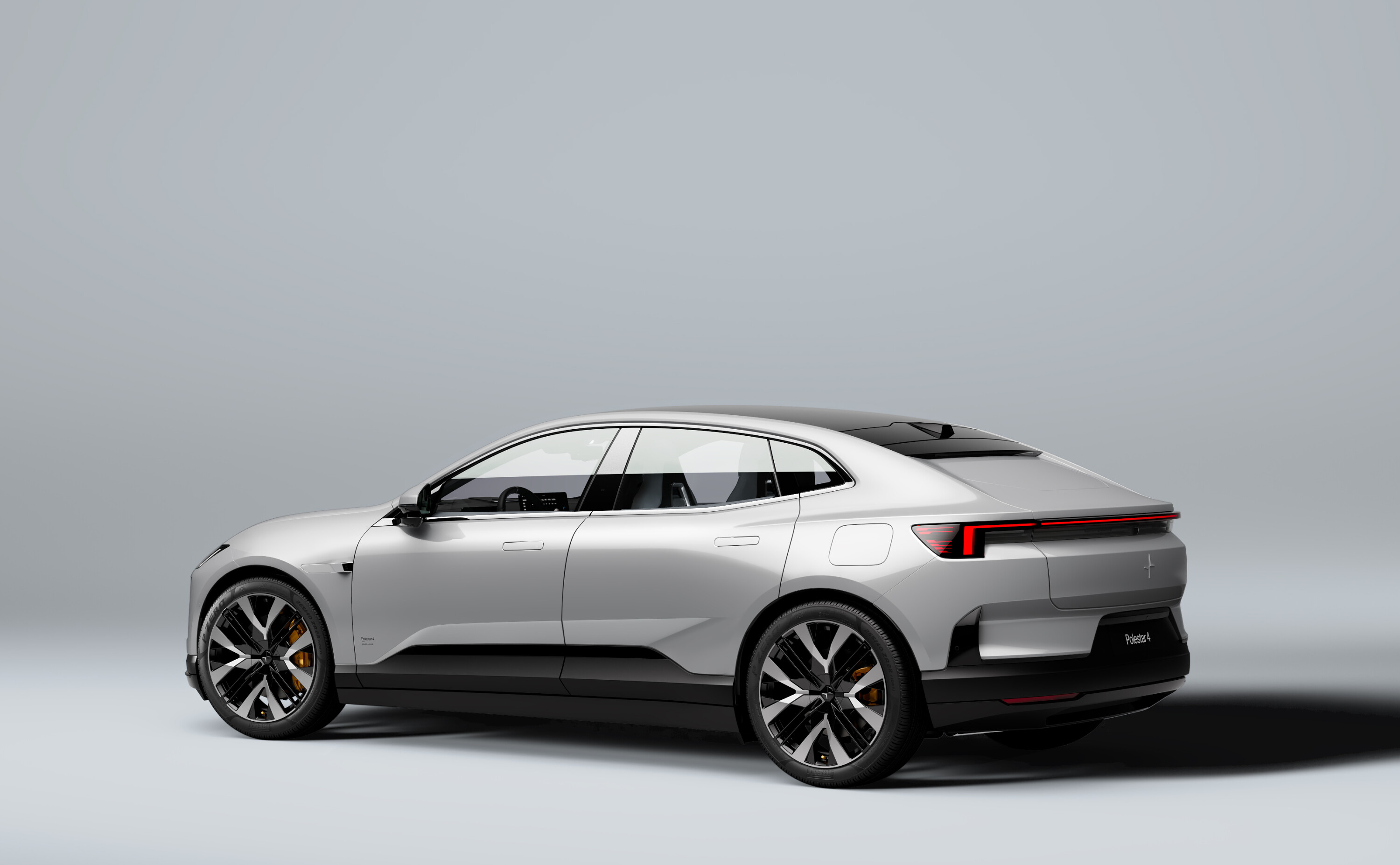
JUMP AHEAD
- Pricing
- Dimensions and boot space
- Performance
- Driving range and charging
- Warranty and servicing
- Standard specifications
- VERDICT: which offers the most value?
Pricing
On the face of it, the Polestar 4’s pricing is competitive with the Model Y; the base Long Range Single Motor promises more driving range (though two less driven wheels) than the Model Y Long Range AWD for a $2900 premium.
Of course, there’s also the base Model Y RWD ($65,400 before on-road costs) in the mix, though it features a smaller 57.5kWh battery making it less competitive with the entry-grade Polestar 4.
The base Polestar 4 Dual Motor is even closer to its direct Model Y rival at just $1030 more. However, as with the Polestar 2, there are option packs that need ticking.
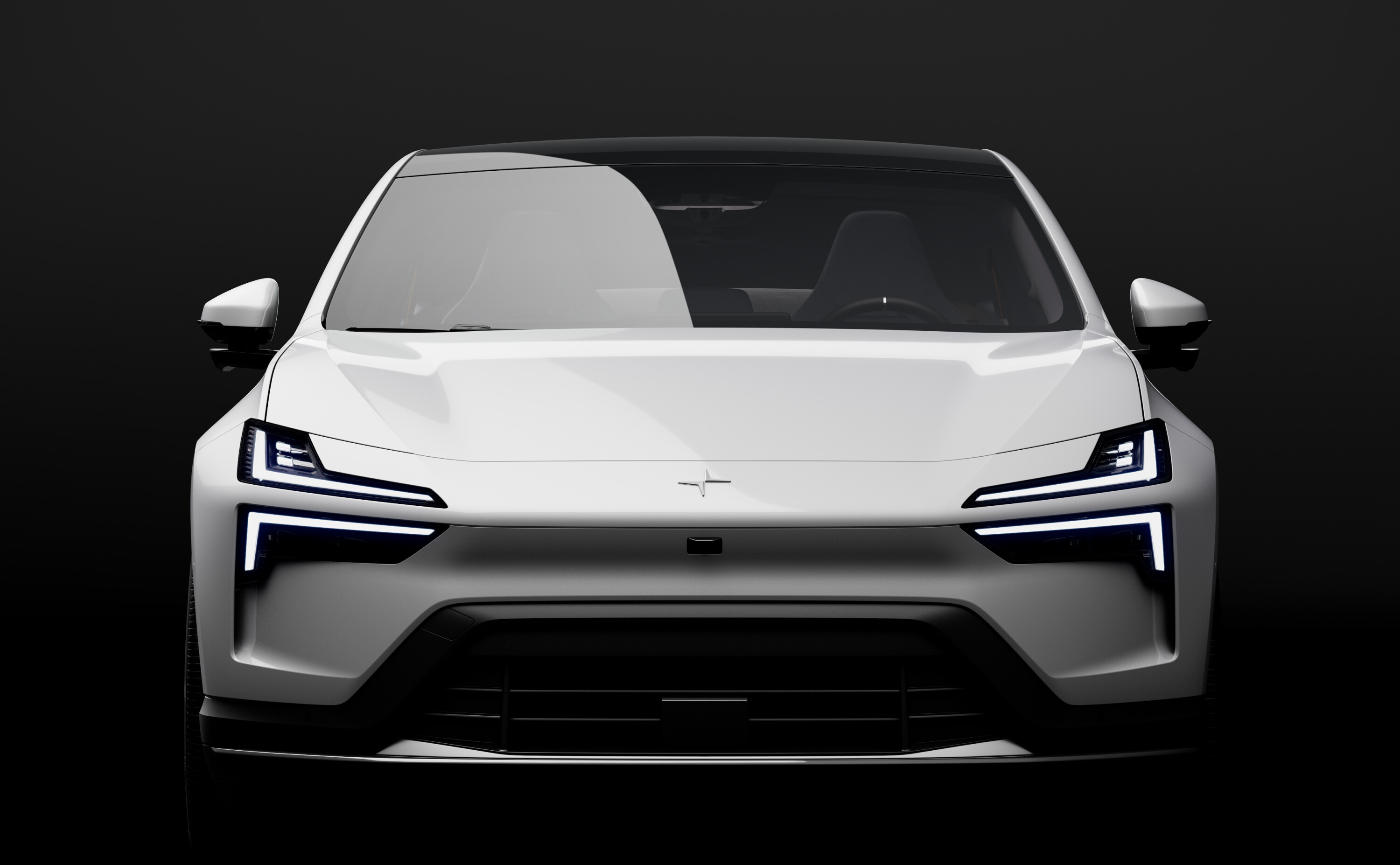
Polestar’s Plus Pack ($8000) has been very popular on the Polestar 2 – expect that to continue with the 4.
It includes a large head-up display screen, a 14-speaker Harman Kardon sound system, wheel heating and other features detailed below.
There’s the Performance Pack for Dual Motor variants, too, that adds another $7200 to the base price, bringing a well-equipped Polestar 4’s price tag up to $108,250 – not far off a more powerful Hyundai Ioniq 5 N.
| Variant | Polestar 4 | Model Y |
|---|---|---|
| Entry | – | Standard Range RWD: $65,400 |
| Mid spec | Long Range Single Motor: $81,500 | Long Range AWD: $78,400 |
| Top spec | Long Range Dual Motor: $93,050 | Performance AWD: $92,020 |
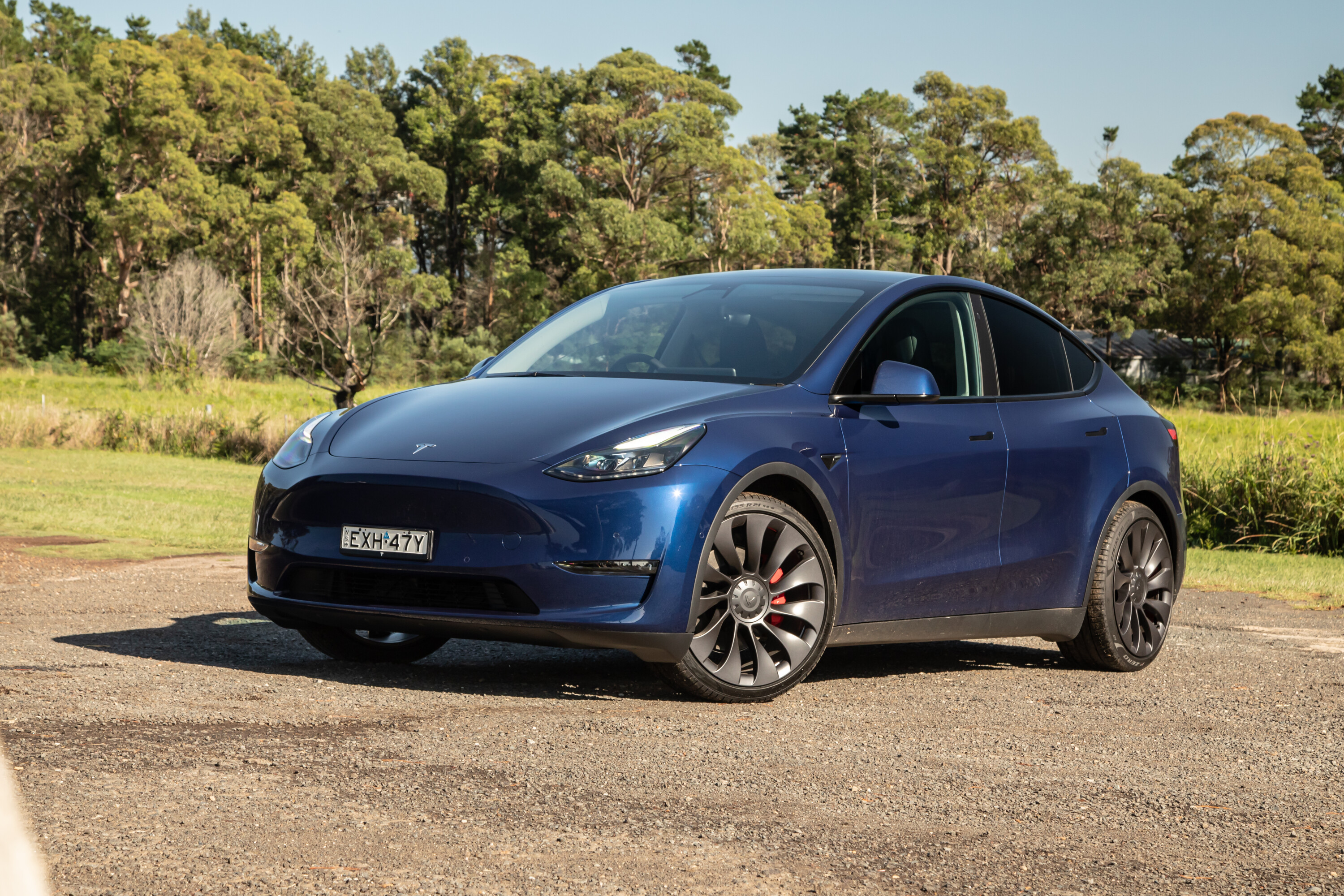
Dimensions and boot space
The Polestar 4 rides on a longer wheelbase than the Polestar 3, though it’s an overall smaller vehicle with a more coupe-inspired aesthetic – the Volvo subsidiary names its vehicles sequentially via release, rather than size as most makers do.
Regardless, the Polestar 4 is a handsome vehicle with crisp lines and confident proportions, more than can be said for the egg-shaped Tesla Model Y.
Inside it’s more personal preference. The Model Y’s airy cabin could be described as cheaply sparse or pleasingly minimal depending on your view. The Polestar’s more cocooning cabin will please those who appreciate quality automotive interior design.
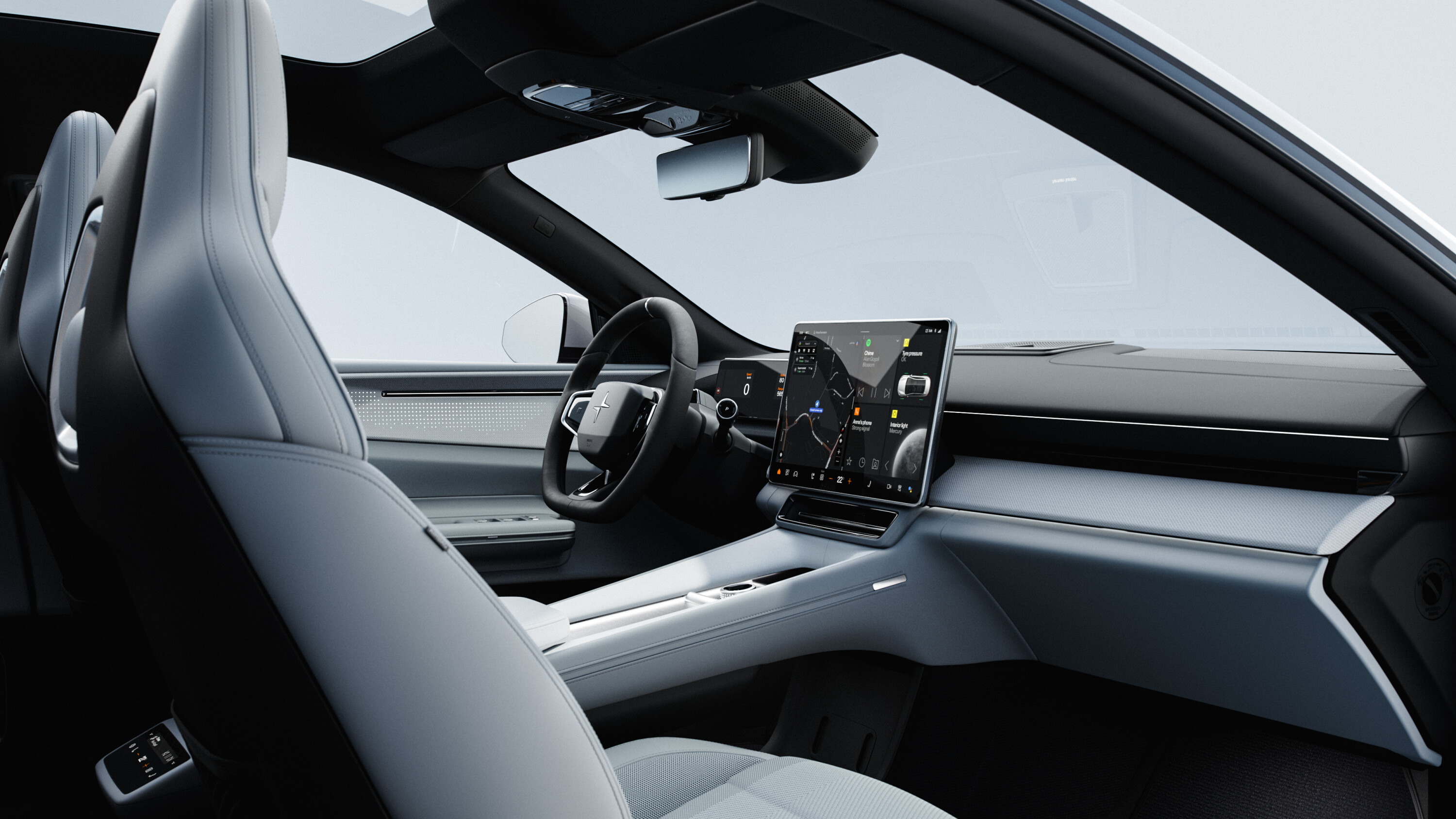
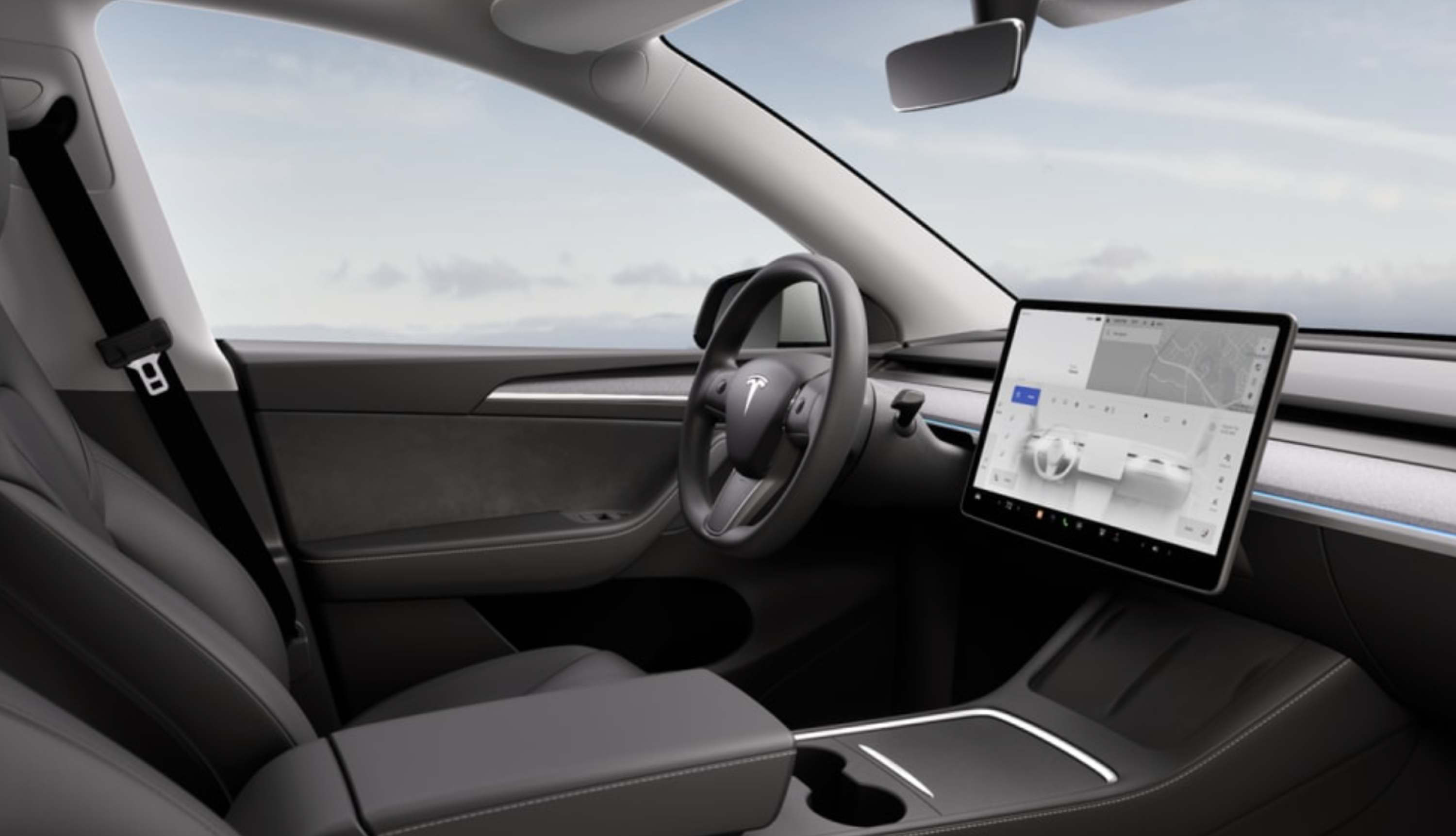
The Model Y’s odd proportions and sparse interior do make for excellent packaging, as the 854L boot space claim (stacked to the roof, as opposed to the Polestar’s VDA measurement) and generous 117L frunk prove.
Tesla has managed to pack more on-paper space into the Model Y’s smaller footprint. The style-forward Polestar 4 isn’t bad, though, with a 526L boot under that practical liftback.
| Dimensions and boot space | ||
|---|---|---|
| Size | Polestar 4 | Model Y |
| Length | 4840 mm | 4715 mm |
| Width | 2139 mm* | 1921 mm |
| Height | 1534 mm | 1624 mm |
| Wheelbase | 2999 mm | 2890 mm |
| Ground clearance | 166 mm | 172 mm |
| Cargo | 526 L / 15 L ‘frunk’ | 854 L** / 117 L ‘frunk’ |
| Weight | 2230-2355 kg (kerb) | 1909-1997 kg (tare) |
* Width including mirrors
** Tesla quotes boot measurements to the roof, covering the window line. The Polestar’s measurement is VDA, to the bottom of the window.
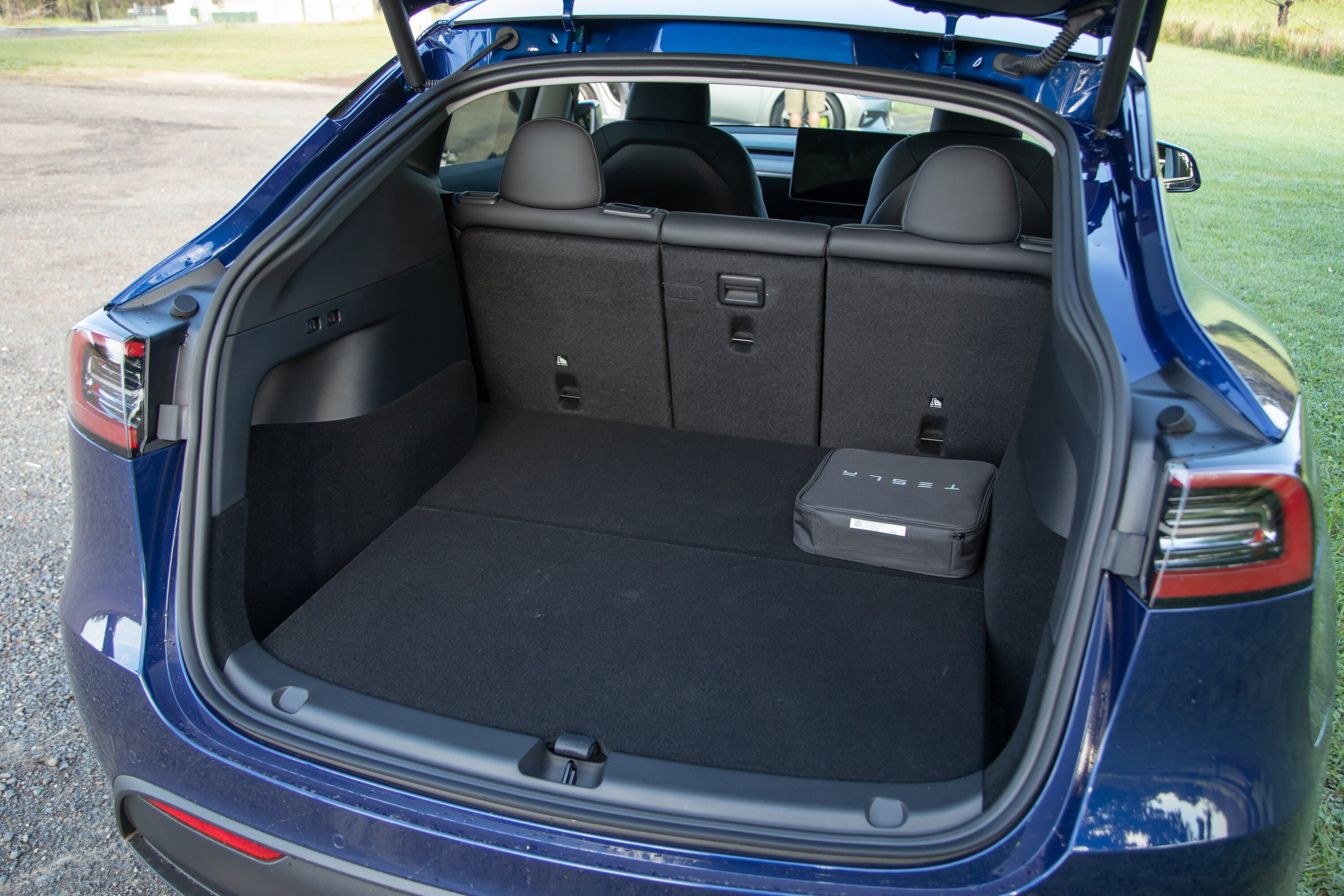
Performance
Both top-spec medium SUVs are blisteringly quick for family transport, the Polestar 4 hitting 100km/h in a claimed 3.8 seconds just pipped by the 3.7-second Tesla.
If we’re being honest, you’ll struggle to tell the difference between how fast these two are in the real world – anything sub-four is plenty rapid.
At the more affordable end of the spectrum, it’s the Tesla with a significant advantage. An extra 178kW and 150Nm combined with better all-wheel drive grip see the Model Y Long Range hit 100km/h in a claimed 5.0 seconds to the Single Motor Polestar 4’s 7.1 seconds.
Top speed isn’t relevant in Australia, but if you happen to be reading this to select the best Autobahn partner then the Model Y Performance’s ability to hit 250km/h (50km//h faster than either Polestar) will be welcome.
| Specification | Polestar 4 LR SM | Polestar 4 LR DM | Model Y LR AWD | Model Y Performance |
|---|---|---|---|---|
| Power | 200 kW | 400 kW | 378 kW* | 393 kW* |
| Torque | 343 Nm | 686 Nm | 493 Nm* | 660 Nm* |
| E-motor / engine | Single permanent magnet synchronous motor | Dual permanent magnet synchronous motors | Dual AC permanent magnet synchronous motors | |
| Driven wheels | Rear | All | All | All |
| 0-100km/h claim | 7.1 seconds | 3.8 seconds | 5.0 seconds | 3.7 seconds |
| Top speed | 200 km/h | 217 km/h | 250 km/h | |
* Figures obtained from EV Database and government data as Tesla does not market certain specifications.
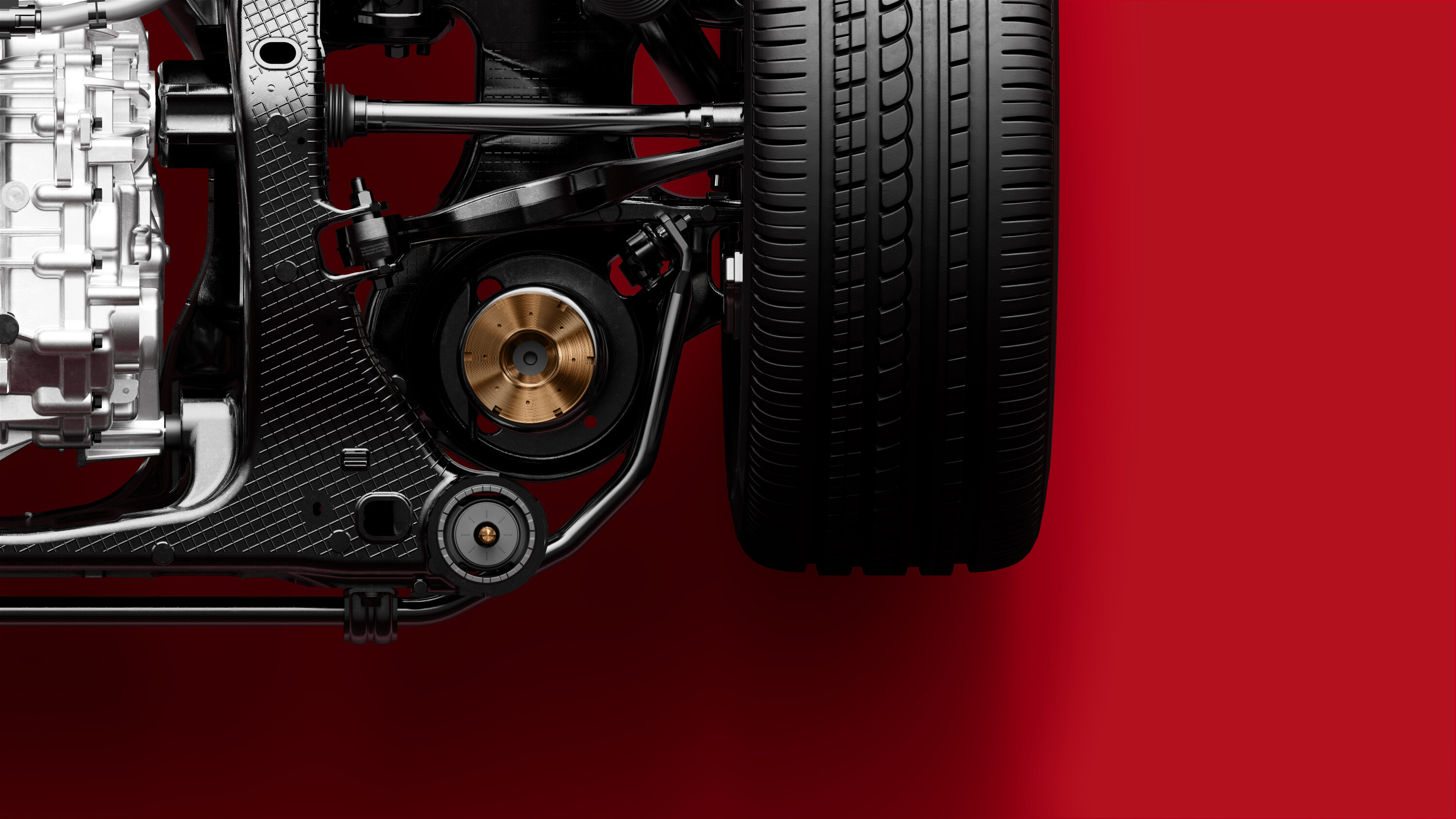
Driving range and charging
Polestar is questioning Tesla’s place at the top of driving range charts from all angles.
The heavily updated Polestar 2 shifted its more efficient motors to the rear to make it the longest-range EV on sale in Australia.
Now, thanks to a huge 94kWh NCM lithium-ion battery and 0.261Cd, the Polestar 4 outguns its closest rival from Tesla by 14.5 per cent in driving range stakes, with 610km targeted for the Long Range Single Motor in the combined WLTP cycle.
Raw efficiency numbers, though, prove the Tesla is doing more driving with less battery. The WLTP efficiency rating for the rear-drive Polestar 4 is 17.1kWh/100km, while the all-wheel drive Tesla’s is 14.1kWh/100km. Much of this could be attributed to Polestar’s design-forward approach (no potato-shaped cars, for example).
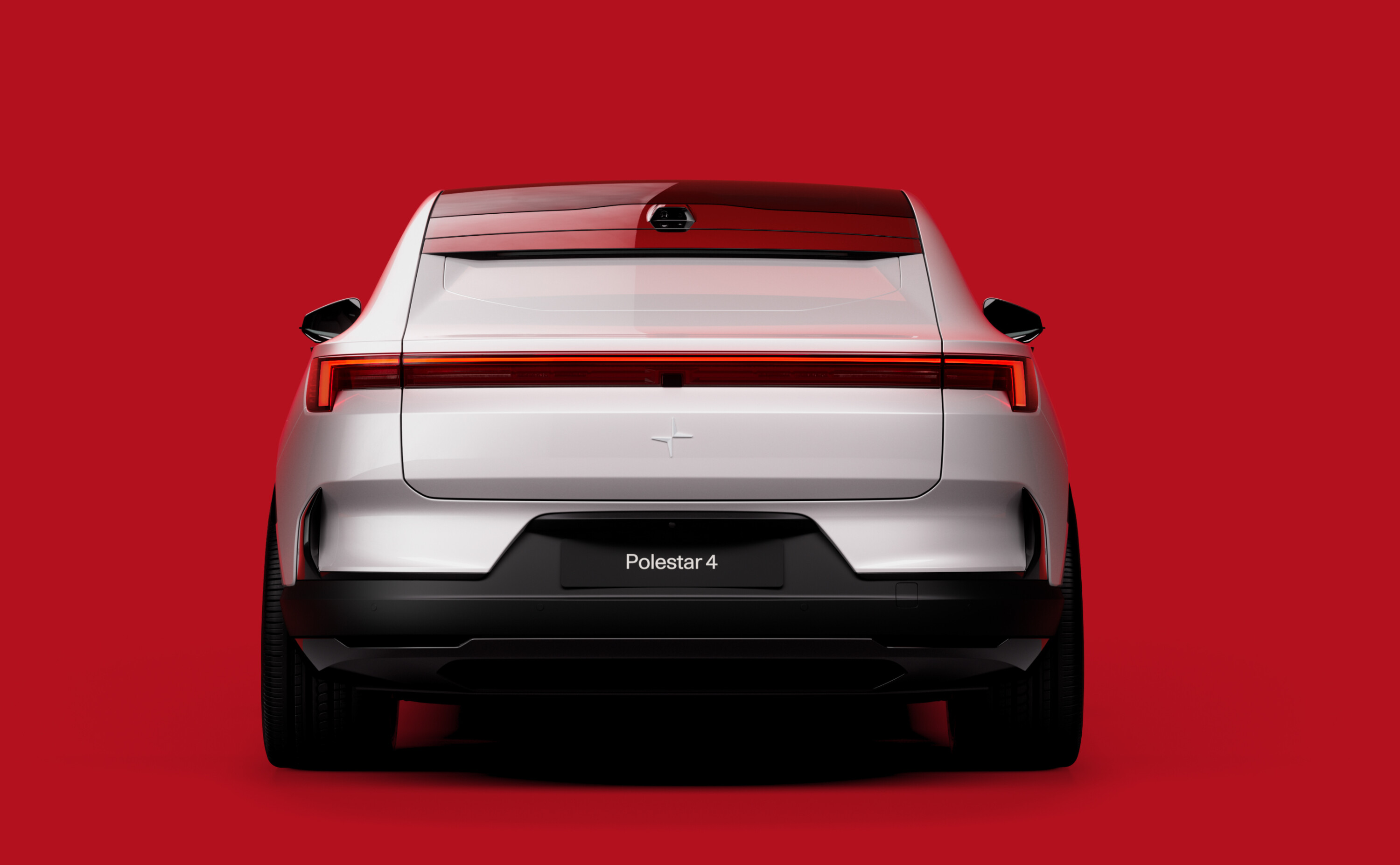
The Polestar’s SEA underpinnings mean its high-voltage parts are capped at 400-volts, so although it charges rapidly the new 4 doesn’t match the Hyundai Ioniq 5 or Kia EV6’s 18-minute fast-charge times.
Still, at a peak of 200kW DC, the 94kWh battery can be juiced from 10-80 per cent in 30 minutes on an ultra-rapid charger. The Model Y’s peak DC speed of 250kW is better but only improves rapid charging by three minutes.
With the $8000 Plus Pack, Polestar includes a 22kW AC charger for snappier home and destination charging – it’ll go from flat to full nearly three hours faster than a Tesla if you have the infrastructure.
| Specification | Polestar 4 LR SM | Polestar 4 LR DM | Model Y LR AWD | Model Y Performance |
|---|---|---|---|---|
| Battery size usable (gross) | 94 kWh (100 kWh) | 75kWh* | ||
| Driving range (WLTP) | 610 km** | 580 km** | 533 km | 514 km |
| Peak DC rate | 200 kW | 250 kW | 250 kW | |
| DC 10-80% | 30 minutes | 27 minutes | ||
| Peak AC rate | 22 kW with Plus Pack | 11 kW | ||
| AC 0-100% | 5 hours 30 minutes | 8 hours 15 minutes | ||
* Figures obtained from EV Database and government data as Tesla does not market certain specifications.
** Provisional range targets yet to be confirmed in WLTP
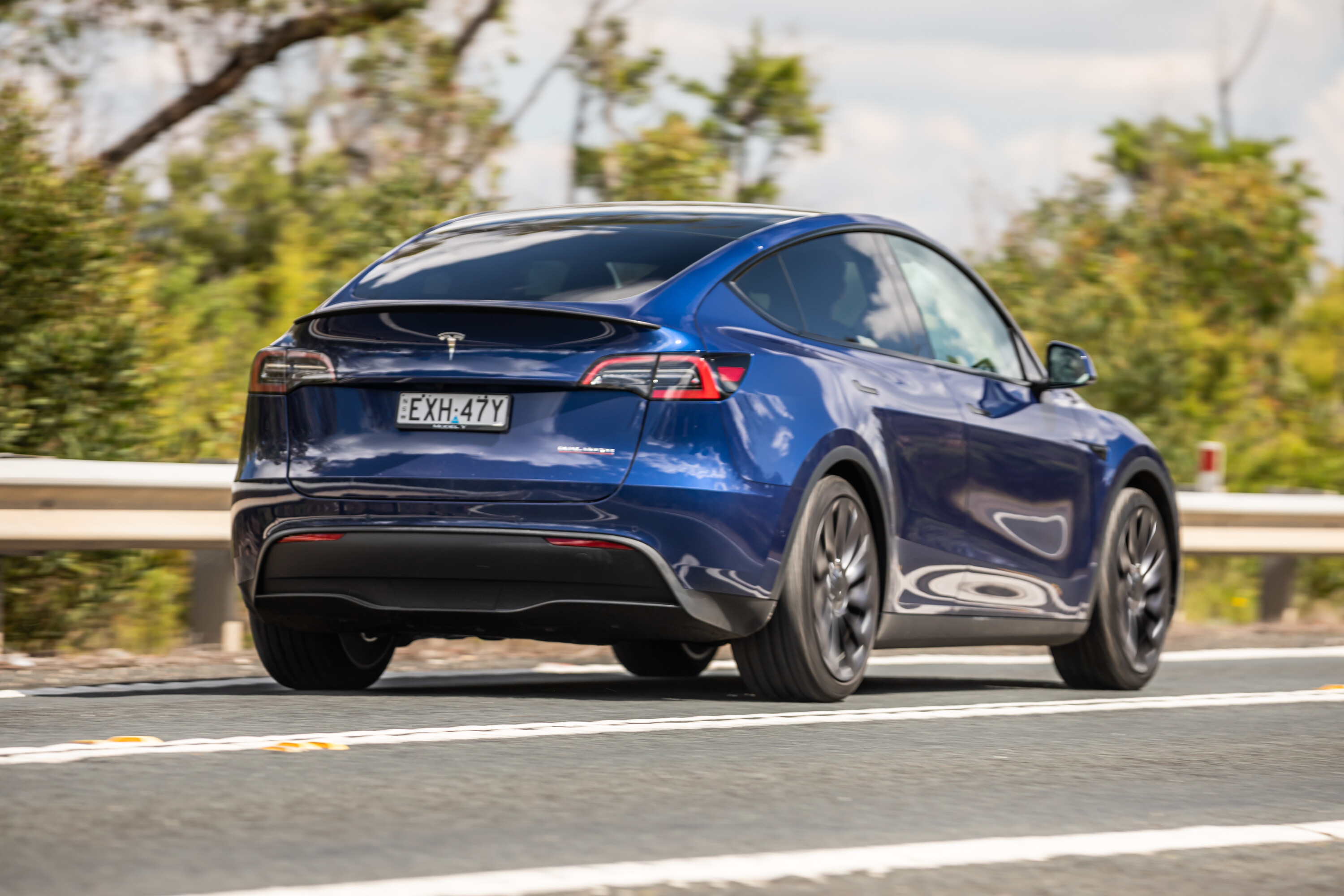
Warranty and servicing
Tesla covers its cars with a four-year/80,000km warranty which falls short of the industry standard in Australia.
The battery is ensured by its manufacturer to stay over 70 per cent capacity for 8 years/160,000km – that’s the same for the Polestar 4.
Polestar’s warranty is more conventional and covers the 4 for five years and unlimited kilometres. The Polestar requires a trip to a service centre every two years/30,000km while Tesla operates on a conditional basis.
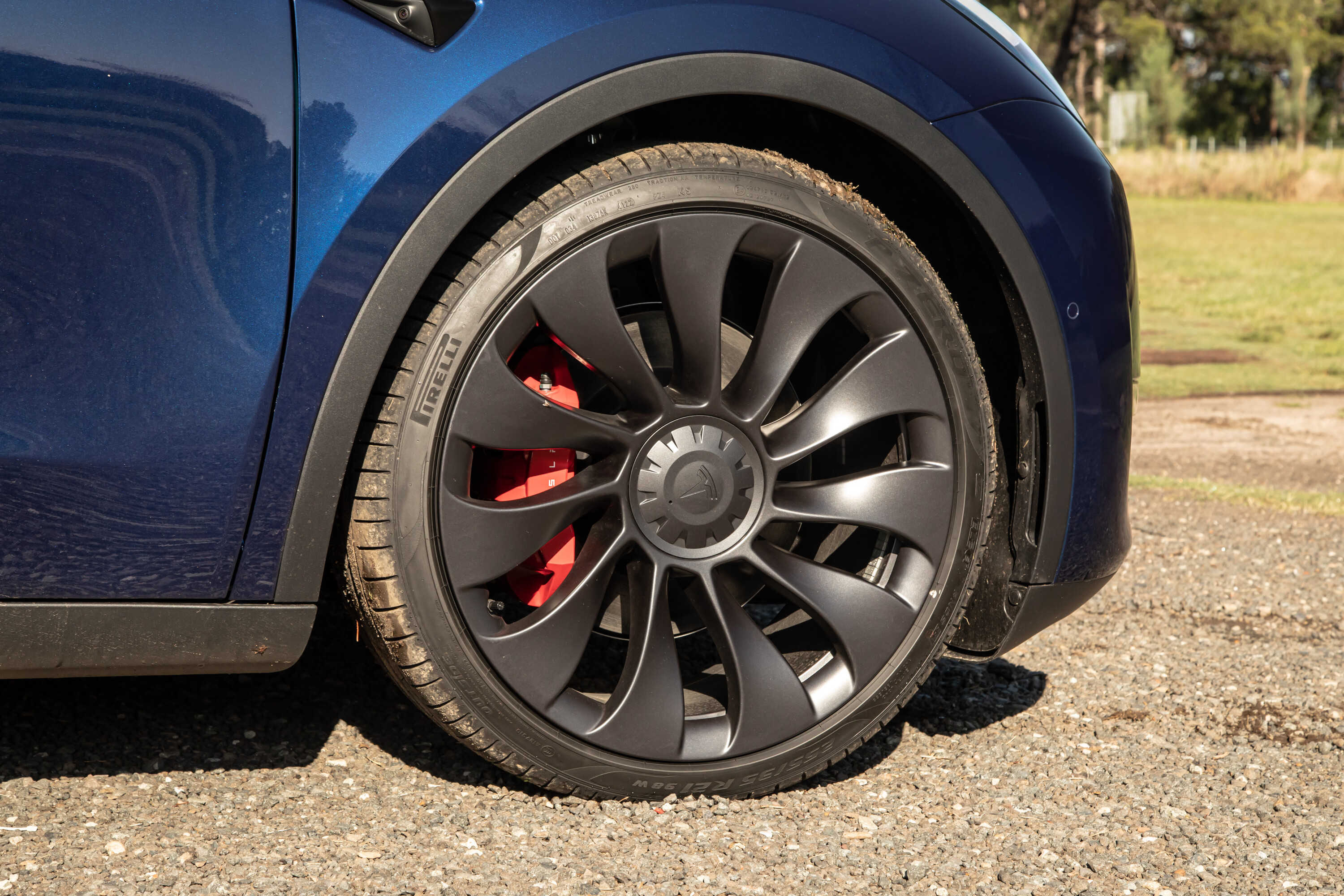
Standard specifications
The Polestar 4 has caught up with Tesla’s advanced operating system, with the brand offering digital key functionality, over-the-air software updates, and Android Automotive operating system that obliges wireless Apple CarPlay through a 15.4-inch touchscreen.
Polestar includes the Pilot Pack (adaptive cruise control with stop & go up to 150km/h, advanced lane-tracing, blind-spot monitoring) standard on all Aussie-delivered Polestar 4s.
| Polestar 4 key features | Tesla Model Y key features |
|---|---|
| 20-inch alloy wheels | 19-21-inch alloy wheels |
| 15.4-inch landscape touchscreen | 15-inch horizontal touchscreen powered by an AMD Ryzen processor |
| Android Automotive operating system with built-in Google Assistant, Maps, Play Store, with downloadable apps, OTA software updates, and wireless Apple Carplay | Tesla operating system with built-in Google Maps, music and video streaming, and toybox |
| Built-in dashcam and 4x USB-C connectors | Built-in dashcam and sentry mode recording |
| 10.2-inch digital driver’s display | Dog mode |
| Animal mode | HEPA cabin air filter |
| Cleanzone climate control with heatpump | Animal-free material interior with suede trim |
| 100% recycled plastic ECONYL textile floor mats | Tesla mobile app with phone key function |
| Polestar app with vehicle functionality and smart home integration, digital key, NFC card, key fob | Dual Qi wireless charging pad |
| 15W wireless charging pad | 13-speaker sound system |
| Eight-speaker sound system | Fixed panoramic glass roof |
| LED headlights with active beam | Flush door handles |
| Retractable door handles | LED head- and tail-lights |
| Illuminated Polestar emblem | LED front fog lights (Performance only) |
| Fully electric front seats with driver’s memory | Track mode (Performance only) |
Both vehicles offer optional extras to tailor them to your fancy.
For the Model Y, it’s pretty simple: any colour bar flat white will cost $1500, white upholstery costs $1500, and you can size the wheels up on lower trims for $2400.
Enhanced Autopilot isn’t something we’ve sampled, but promises automatic lane changes while navigating on adaptive cruise and summon commands for $5100. Full self-driving remains a $10,100 option that Tesla is yet to implement in Australia.
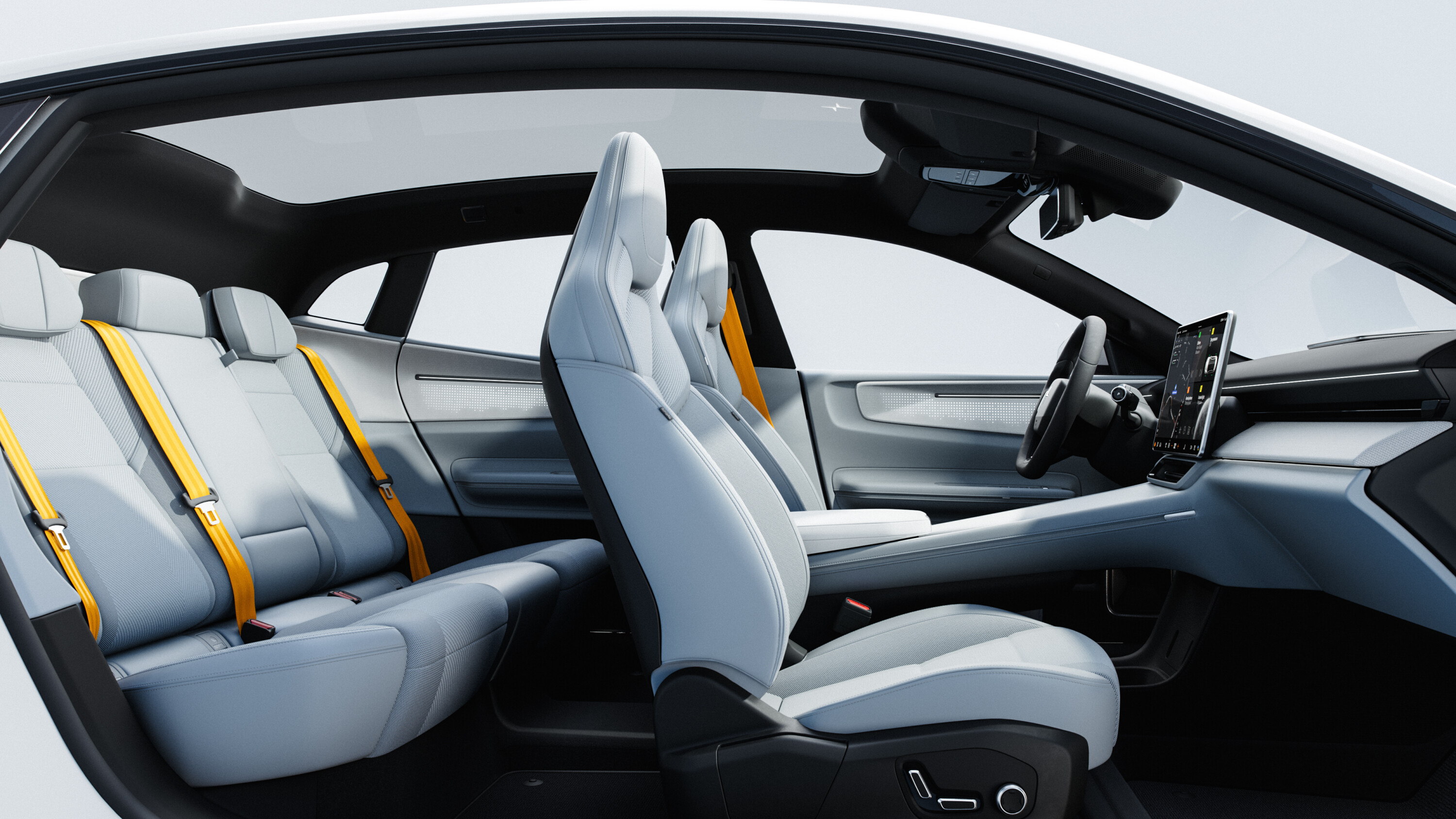
The Polestar 4 offers a lot more customisation, starting with the Plus Pack that’s likely to prove popular. It adds the below features.
| Plus Pack $8000 | |
|---|---|
| 14.7-inch head-up display | Tri-zone climate control with air quality monitoring |
| 14-speaker Harman Kardon premium audio | Rear climate control and entertainment screen |
| Pixel LED headlights with Adaptive High Beam | Heated rear seats |
| 22 kW AC charging limit | Heated steering wheel |
| Powered steering column with profile memory | Automatic dimming side mirrors |
| Easy ingress/egress | Star Knit illuminated interior deco |
| Extended electric adjustment settings for front seats | MicroTech upholstery in Charcoal, or Tailored Knit upholstery in Mist, with Zinc deco |
| Electric reclining rear seats | Hands-free operation for powered tailgate |
Then you can build on that with the sporty Performance Pack or luxurious Nappa Pack – both are detailed below.
| Performance Pack (requires Plus Pack) $7200 | |
|---|---|
| Polestar Engineered chassis tuning | Brembo performance brakes in Swedish gold |
| 22-inch Performance forged alloy wheels | Swedish gold valve caps, seat belts |
| Pirelli P-Zero 265/40R22 | |
| Nappa Pack (requires Plus Pack) $7000 | |
|---|---|
| Perforated Bridge of Weir Nappa leather, animal welfare-secured, in Zinc or Charcoal | Rear comfort headrests |
| Ventilated front seats with massage | Brushed textile headliner |
| Additional headrest speakers for Harman Kardon audio | |
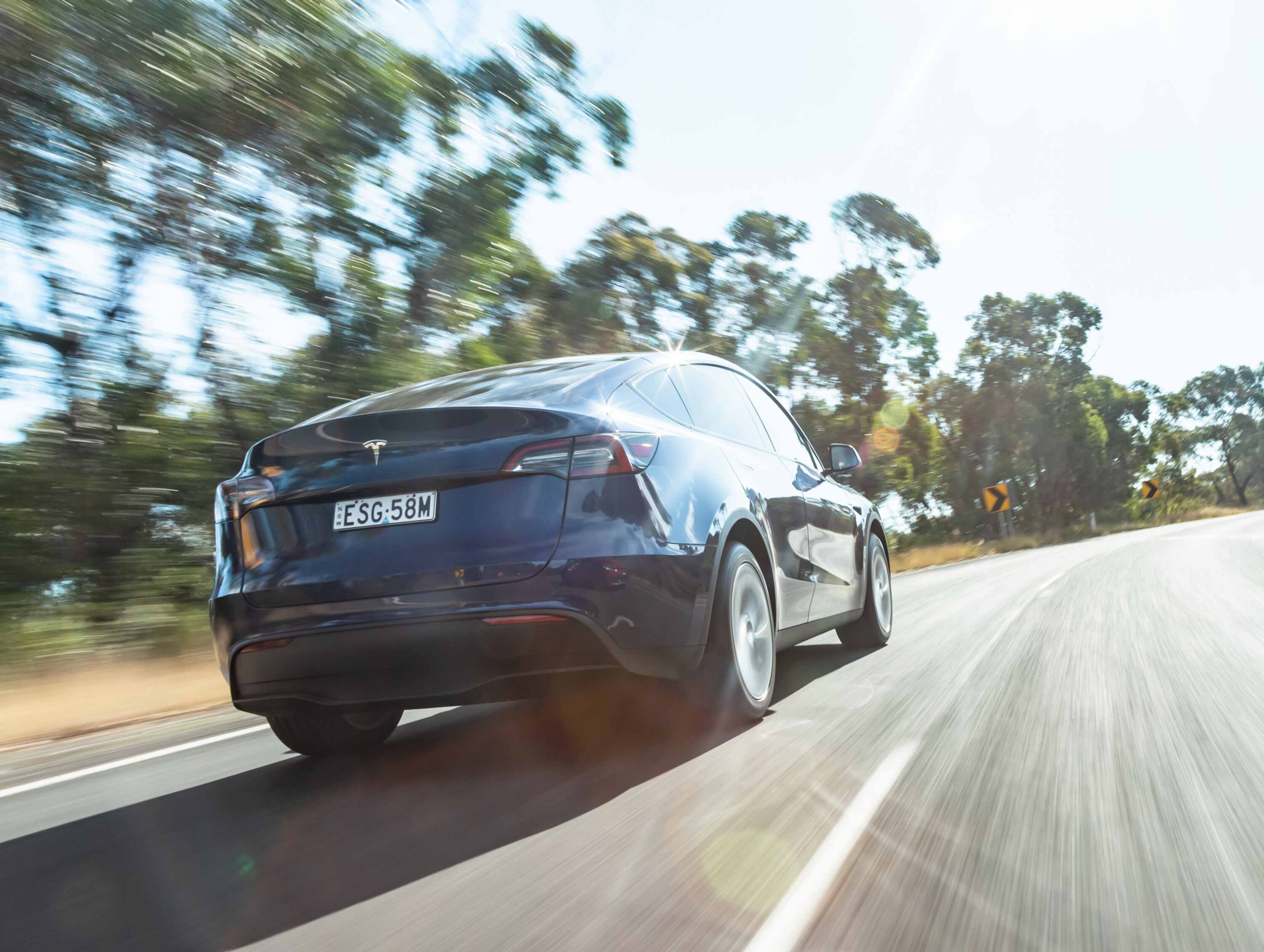
And then come the standalone options for ultimate customisability.
| Standalone options | |
|---|---|
| Premium metallic paint | $2300 |
| Painted body cladding (requires Plus Pack) | $1400 |
| 21-inch Sport wheels (not available with Pro Pack) | $2500 |
| Electric folding tow bar | $2900 |
| Electrochromic panoramic glass roof*** | $2700 |
| Privacy glass for rear side windows | $700 |
| AC charging cable | $360 |
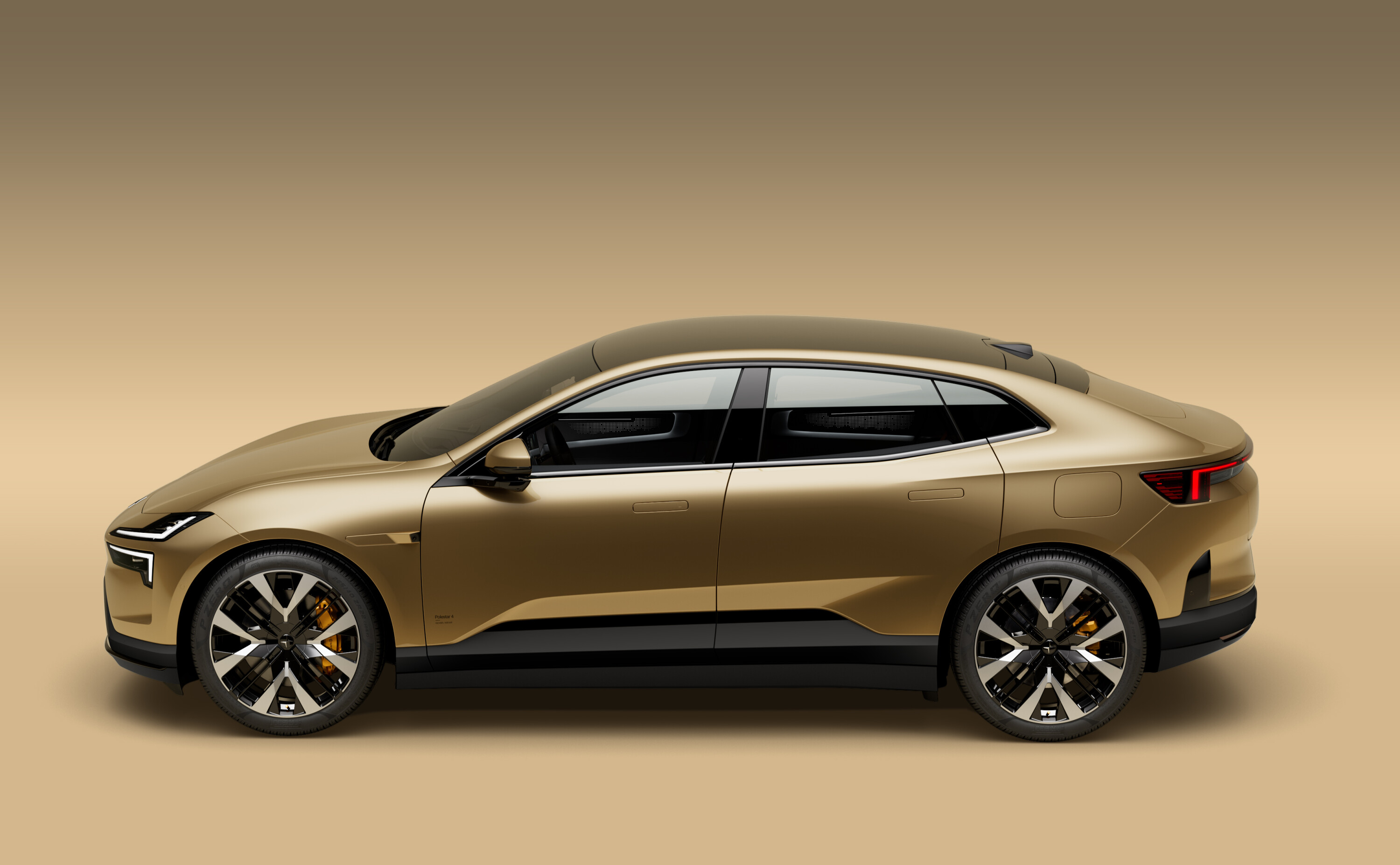
VERDICT: which looks best on paper?
We’ll reserve final judgement until the Polestar 4 has arrived on Australian shores and we’ve driven it back-to-back with its Model Y rival.
The slightly larger Polestar is more expensive across the board, but then it offers greater customisation and a more design-led approach – all without sacrificing the kind of connectivity a Tesla owner would expect.
Polestar isn’t looking to play in the volume segment, so don’t expect sales to overtake the best-selling Model Y any time soon. Instead, think of the Polestar 4 as an intriguing alternative for those with an eye for design – we hope it drives as good as it looks.



